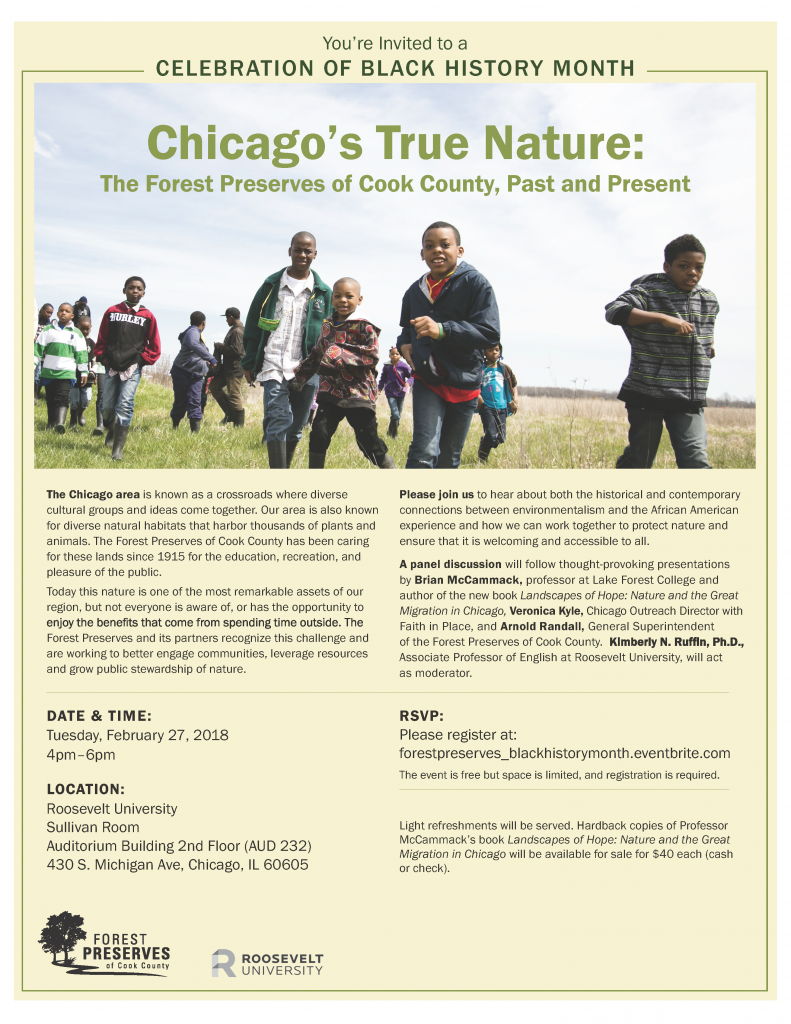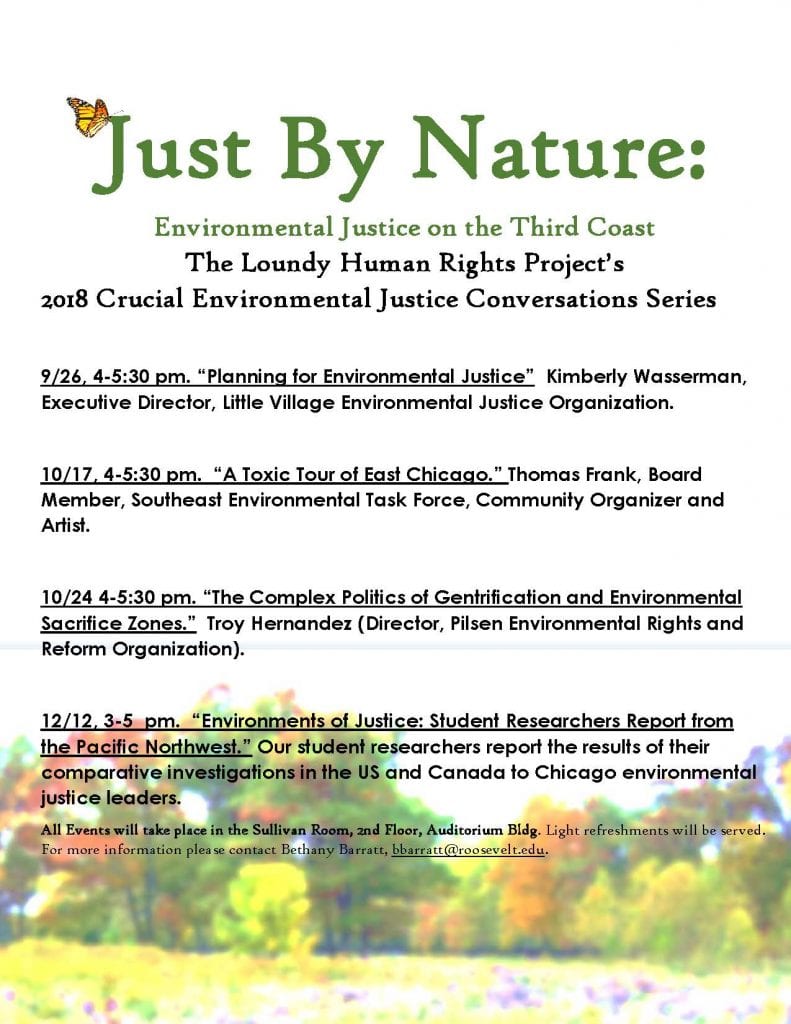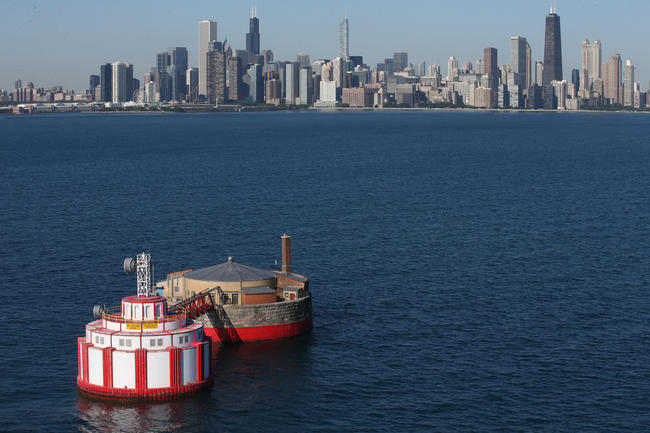 DATE & TIME:
DATE & TIME:
Tuesday, February 27, 2018
4pm –6pm
LOCATION:
Roosevelt University
Sullivan Room
Auditorium Building 2nd Floor (AUD 232)
430 S. Michigan Ave, Chicago, IL 60605
RSVP:
Please register at:
forestpreserves_blackhistorymonth.eventbrite.com
You’re Invited to a Celebration of Black History Month!
The Chicago area is known as a crossroads of diverse cultural groups and ideas. Less commonly known, is the biological diversity of our region. Varied ecosystems are home to native plant and animal species thriving within the Forest Preserves of Cook County.
With nearly 70,000 sprawling acres of wild and wonderful wilderness, the Forest Preserves is a regional asset which improves our quality of life, but not everyone is aware of or has the opportunity to enjoy the benefits that come from spending time outside. The Forest Preserves and its partners recognize the challenge of ensuring that everyone has access to nature and are working to better engage communities of color and grow public stewardship of nature.
Please join us to hear about both the historical and contemporary connections between environmentalism and the African American experience and how we can work together to protect nature and ensure that it is welcoming and accessible to all.
A panel discussion will follow thought-provoking presentations by Brian McCammack, professor at Lake Forest College and author of the new book Landscapes of Hope: Nature and the Great Migration in Chicago, Veronica Kyle, Chicago Outreach Director with Faith in Place, and Arnold Randall, General Superintendent of the Forest Preserves of Cook County. Kimberly N. Ruffin, Ph.D., Associate Professor of English at Roosevelt University, will act as moderator.
Light refreshments will be served. Hardback copies of Professor McCammack’s book Landscapes of Hope: Nature and the Great Migration in Chicago will be available for sale for $40 each (cash or check).
The event is free but space is limited, and registration is required. For directions and transportation information please visit www.roosevelt.edu/campuses/maps-directions
This event is co-sponsored by Roosevelt University and the Forest Preserves of Cook County.
Speaker Bios and Abstracts:
Veronica Kyle directs all of Faith in Place’s Chicago outreach programs, with a particular passion for those related to Sustainable Food and Land Use. She is responsible for the creation of the Migration & Me Program which came about as the result of the realized concern that there were not enough people of color, mainly brown and black people, who were visibly engaged in available extracurricular outdoor activities, stewardship, and Earth care.
Brian McCammack is the author of Landscapes of Hope: Nature and the Great Migration in Chicago (Harvard University Press, 2017) and Assistant Professor of Environmental Studies at Lake Forest College, where he teaches courses on environmental history and politics. Landscapes of Hope recently won the 2018 George Perkins Marsh Prize for best book in environmental history from the American Society for Environmental History. In Landscapes of Hope, he examines the deep connections to nature that black Chicagoans forged in the first half of the twentieth century. The Forest Preserves of Cook County were particularly notable in this regard because African Americans not only sought out leisure there despite racial segregation and intimidation, but the labor of young black men in the Civilian Conservation Corps also helped improve and even build areas like the Skokie Lagoons.
Arnold Randall is the General Superintendent of the Forest Preserves of Cook County. The Forest Preserves of Cook County, established over a century ago, is one of the oldest and largest urban conservation districts in the United States, managing nearly 70,000 acres of diverse habitat across Cook County and offering recreation and education programs for audiences of all ages and from all walks of life. But preserving nature today in the nation’s second largest county comes with its own particular challenges – a lack of funding, climate change, and an urban population often out of touch with nature. The Forest Preserves is actively working with partners to provide a variety of programs that link diverse and urban populations with nature, including a Conservation Corps job training program and robust camping program at five new campgrounds.
Kim Ruffin is an Associate Professor of English at Roosevelt University, author of Black on Earth: African-American Ecoliterary Traditions (U. of Georgia Press, 2010), and nature-loving Certified Forest Therapy Guide.










